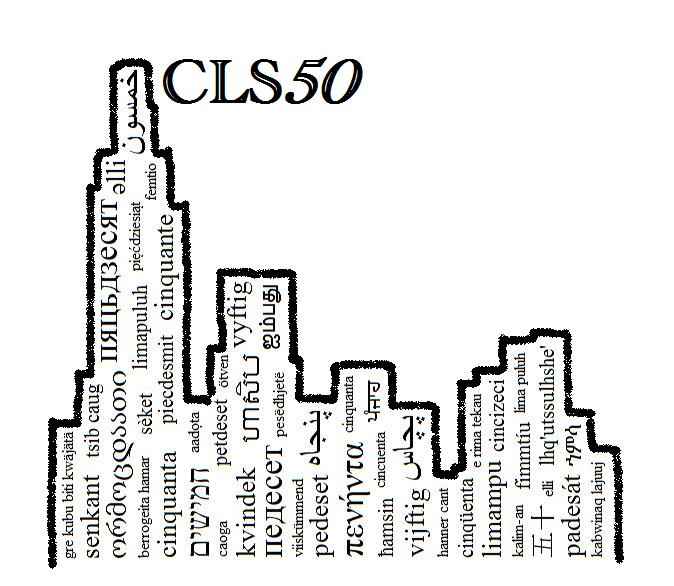Chicago Linguistics Society Celebrates 50th Annual Conference

The Chicago Linguistic Society’s annual conference has occupied an important role in the field of linguistics from the very first conference in 1965. “It was the place to be in the 60s and 70s,” observed second-year Linguistics PhD student Adam Singerman. “When you look at the old proceedings it’s striking how many important papers were discussed here.”
Decades later, the conference—now the oldest graduate student-run linguistics conference in the country—continues to attract new generations of scholars. On April 10-12, graduate students from the Department of Linguistics celebrated the 50th version of the conference, dubbed “CLS 50,” hosting hundreds of linguists in Ida Noyes Hall for plenary sessions, invited lectures, and a panel discussion on the history of the Chicago Linguistics Society (CLS).
CLS 50
In contrast to many graduate student conferences, said Singerman, one of the eleven organizers of the event, the CLS “is run by graduate students but not exclusively for graduate students.”
Panelists from distinguished professors to early career graduate students presented on the linguistic structures of languages ranging from the familiar (English and German) to the less familiar (Mongolian and Arapaho), and the extinct (Cupeño, an extinct Uto-Aztecan language of California) to the unspoken (American Sign Language).
The final day’s proceedings included a panel discussion on the history of the CLS. The CLS “has accumulated a lot of lore and a culture of its own,” said Singerman. “The panel was a celebration of that.” Moderated by John A. Goldsmith, Edward Carson Waller Distinguished Service Professor of Linguistics and Computer Science, the panelists included Jerrold Sadock, the Glen A. Lloyd Distinguished Service Professor Emeritus of Linguistics, and alumni Donka Farkas, PhD’81, professor of linguistics at University of California, Santa Cruz, and Anthony C. Woodbury, AB’75, AM’75, professor of Linguistics at the University of Texas at Austin.
“PREMIER CONFERENCE” FOR LINGUISTICS
For co-organizer Natalia Pavlou, the history of the CLS is “a history book for both the department and the field of linguistics.”
Shortly after its initial conference, the CLS became a place for exchanging new ideas in the field of linguistics. “It was the locus both for the reporting of new discoveries as well as for the major theoretical debates of the day,” said Jason Merchant, professor of Linguistics and deputy dean for languages. “It continues to be a premier conference for all kinds of linguistics.”
The CLS is a major milestone of its own for every linguistics PhD student at UChicago. Every year the second-year cohort is responsible for organizing the entire conference—from renting equipment to inviting speakers to reading through every abstract submission. This professional development opportunity is filled with long hours and lots of work, but the benefits gained are worth the effort.
“It’s a great source for sparking research interests and meeting other linguists, big names and brilliant graduate student alike, all in my own backyard,” said co-organizer Cherry Meyer. In addition, “it was a great way to bring us together as a cohort.”
With fifty years of experience as a leading linguistics conference, the CLS shows no signs of slowing down. Linguistics faculty members and graduate students have no doubt the tradition will continue. “The CLS conference has survived firstly because of its fame and secondly because of the willingness of students to keep the tradition year after year,” Pavlou said. Meyer agreed: “As long as there are incoming graduate students there will be a CLS conference.”